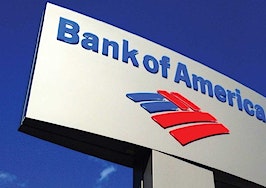- Loan originations have declined by 60 percent nationally since 2005, when there were 11.7 loan applications for single-family homes.
- The highest price increases were reported in Colorado, Utah, Idaho, Nevado, Oregon and Washington.
- Texas saw a 1.4 percent monthly increase and an annual uptick of 6.9 percent.
CoreLogic’s June report finds that loan refinancing doesn’t make sense for a lot of current homeowners in the U.S.
Forecasts predict mortgage rates will increase this year, so CoreLogic used its data to determine refinancing conditions, mortgage denial rates and the overall health of the housing market throughout the nation.
As of May 12, 2015, the monthly average commitment rate was reported at 3.57 percent. A good rule to follow for refinancing is to add 100 basis points onto the current rate, which would bring it to 4.57 percent.
Most borrowers held mortgages around 4.50 percent in May, just slightly below the threshold that makes sense for refinancing. And if mortgage rates continue to climb this year as predicted, about 5.5 million borrowers will find refinancing to be an unappealing option.
Mortgage loan applications low
Although refinacing is down, loan origination is also significantly lower than it was 10 years ago. In 2005, there were 11.7 million loan applications for single-family homes. By 2011, that figure dropped to the lowest point in a decade, at 3.6 million.
While it has since upticked to 4.6 million by 2014, there is still a 60 percent drop in mortgage loan applications since the peak of 2005. During the same time period, the number of denials of mortgage loan applications also dropped significantly.
In 2007, 18.7 percent of mortgage loan applications were denied, and 13.2 percent of applicants were denied by 2014.

Mortgage delinquency is falling
In April 2016, the number of seriously delinquent loans (SDQ) fell in April 2016 to 1,135, which is the smallest pool seen in the past year, according to CoreLogic. The April figures show a 21.6 percent annual decline and a 2.8 percent monthly fall.
Foreclosure inventory also dipped to 406 in April, a 3 percent dip monthly and 23.4 percent fall annually. Completed foreclosures also fell annually, but increased a sliver over March. There were 37 completed foreclosures reported in the month of April, just one more than in March but 15.8 percent less than the previous year.

Texas housing market data
The monthly change for the Home Price Index in Texas was reported at 1.4 percent by CoreLogic. The Lone Star State saw a pretty big annual push in home prices of 6.9 percent, which was only surpassed by Washington state, Oregon, Colorado, Idaho, Utah and Nevada.
By next May, home prices are expected to increase a sliver by 0.6 percent. On an annual basis, home prices are expected to continue to rise by May 2017, but at a slightly slower pace of 2.5 percent.
The state of Texas is also faring well in terms of foreclosure inventory, with just 0.6 percent listed.














